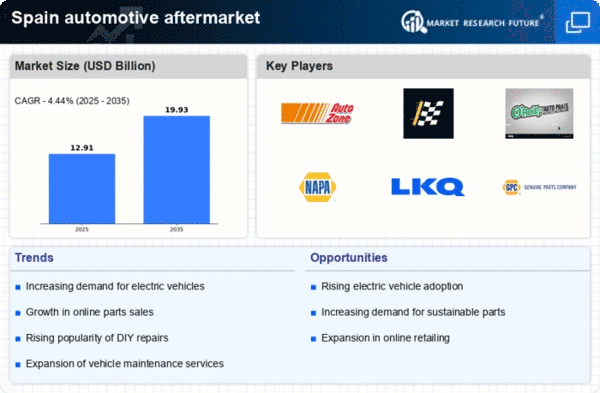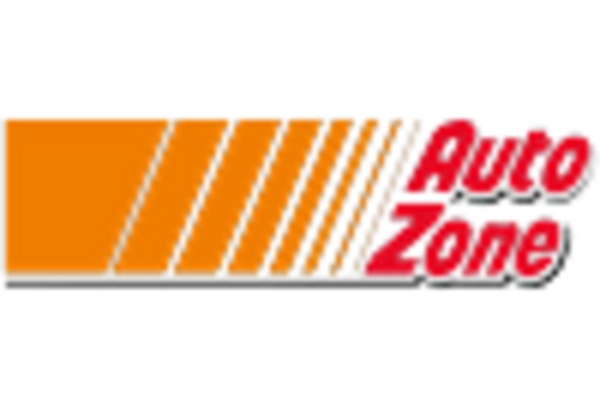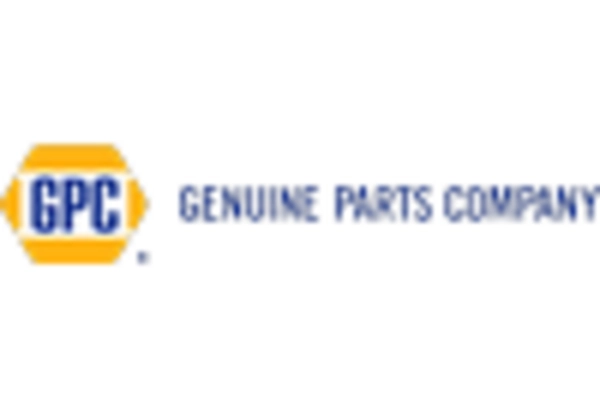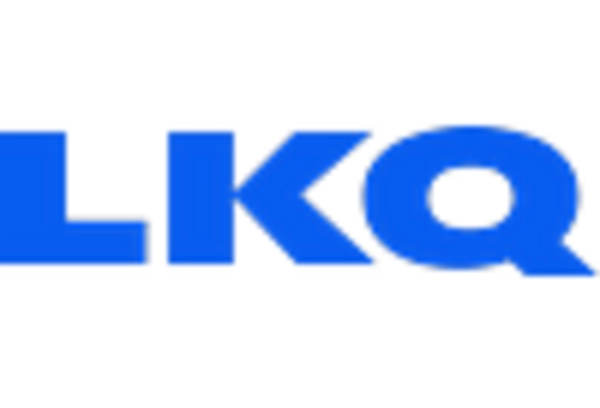Rising Fuel Prices
Fluctuating fuel prices in Spain are influencing consumer behavior and driving demand in the automotive aftermarket market. As fuel costs rise, vehicle owners may seek to enhance fuel efficiency through aftermarket modifications and maintenance services. In 2025, fuel prices are projected to remain volatile, prompting consumers to invest in performance upgrades and regular maintenance to optimize their vehicles' fuel consumption. This trend indicates a potential increase in sales for aftermarket products designed to improve efficiency, such as fuel additives and performance chips. Consequently, the automotive aftermarket market may experience growth as consumers prioritize cost-effective solutions to manage their fuel expenses.
Increasing Vehicle Age
The average age of vehicles on the road in Spain continues to rise, which appears to be a significant driver for the automotive aftermarket market. As vehicles age, the demand for replacement parts, maintenance services, and upgrades increases. In 2025, the average age of a car in Spain is estimated to be around 13 years, leading to a growing need for aftermarket services. This trend suggests that consumers are likely to invest in maintaining older vehicles rather than purchasing new ones, thereby boosting the aftermarket sector. Additionally, older vehicles often require more frequent repairs, which could further enhance the revenue potential for businesses operating within the automotive aftermarket market.
Growth of Online Retailing
The rise of online retailing is reshaping the automotive aftermarket in Spain. E-commerce platforms are increasingly becoming popular channels for consumers to purchase automotive parts and accessories. In 2025, it is estimated that online sales in the automotive aftermarket market could account for over 30% of total sales. This shift towards digital shopping is driven by the convenience and accessibility that online platforms offer. As consumers become more comfortable with online transactions, businesses in the aftermarket sector are likely to adapt their strategies to include robust online sales channels. This evolution may lead to increased competition and innovation within the automotive aftermarket market.
Regulatory Changes and Compliance
Regulatory changes in Spain are impacting the automotive aftermarket market, particularly concerning emissions standards and safety regulations. Stricter compliance requirements are prompting vehicle owners to seek aftermarket solutions that meet these new standards. In 2025, it is anticipated that compliance-related services and products will see a surge in demand, as consumers aim to avoid penalties associated with non-compliance. This trend suggests that businesses focusing on environmentally friendly products and services may find new opportunities for growth. As regulations evolve, the automotive aftermarket market may experience a shift towards more sustainable practices, aligning with broader environmental goals.
Technological Advancements in Automotive Repair
Technological innovations in automotive repair and maintenance are transforming the automotive aftermarket market. Advanced diagnostic tools and equipment are becoming more prevalent, allowing for quicker and more accurate repairs. In Spain, the adoption of these technologies is expected to increase by approximately 20% over the next few years. This shift not only enhances service efficiency but also improves customer satisfaction, as consumers are likely to appreciate faster turnaround times. Furthermore, the integration of technology in repair processes may lead to higher quality standards, which could attract more customers to the aftermarket services, thereby driving growth in the automotive aftermarket market.
















